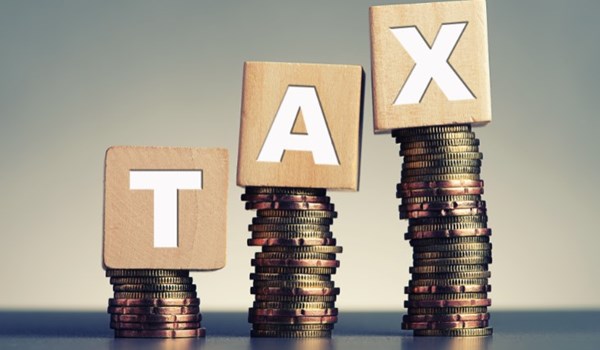Jurisdictions
Regions
Industry Sectors
07/04/21
INTERNATIONAL TAX: Paschal Donohoe defends Ireland's corporation tax rate after US treasury secretary's remarks.

As published on thejournal.ie, Tuesday 6 April, 2021.
PASCHAL DONOHOE HAS said he does not believe Ireland’s low rate of corporation tax has played a role in driving down corporate tax rates globally.
The minister for finance was speaking to reporters upon the publication of exchequer tax and spending returns for the first three months of 2021, which revealed a deficit of €4.172 billion.
Tax receipts generally were up 1% from the same period last year but so was government spending. In the past three months, spending increased by 14% or €2.5 billion to €19.5 billion compared with the first quarter of 2020.
“The amount allocated for Covid-related supports across 2020 and 2021 is in excess of €28 billion,” said Minister for Public Expenditure Michael McGrath.
“This extraordinary level of fiscal support has been and remains necessary to help our country and our people to get through this awful pandemic.”
VAT receipts were up by €350 million or 8.5% from the same quarter of last year, showing that “businesses and consumers have adapted” somewhat despite ongoing public health restrictions, Donohoe added.
In last October’s Budget, the government pencilled in a deficit of between €21-25 billion for 2021 as a result of continued exchequer funding for Covid-related income supports such as the Pandemic Unemployment. On a 12-month rolling basis, the Irish government spent €14 billion more than it took in by the end of March, according to the latest returns.
Donohoe’s comments follow a speech by United States Treasury Secretary Janet Yellen yesterday, in which she made the case for a new global minimum rate of corporate tax to stop countries undercutting one another.
Yellen cited a “30-year race to the bottom on corporate tax rates” characterised by countries slashing their taxes on business in order to lure multinational companies.
Asked whether he agreed with her analysis, Minister Donohoe said, “But Ireland’s corporate tax rate has been unchanged at 12.5%. So, if the case has been made about a race to the bottom, our rate has not changed during that period.”
Ireland’s headline corporation tax rate was reduced from 32% to 12.5% in the 1999 Finance Act and applied from 2003 onwards.
The Fine Gael TD for Dublin Central pointed to the removal of the so-called ‘Double Irish’ tax loophole from 2015 onwards as one of a “huge range of measures” adopted by successive Irish governments to “reform our tax code” in recent years.
“But even though our tax rate has not changed, the global context now on the debate on corporate tax policy has now changed as a result of this pandemic,” Donohoe added.
He said that ongoing OECD talks around global taxation rules are “a forum within which these issues can be raised” by countries on an equal footing.
“What Ireland and other countries will do is put forward their case within with the OECD, and we’ll work inside that process to try and influence an outcome that recognises the role of small economies in the global economy,” he said.
Irish policymakers and economists have long anticipated that Biden administration policy shifts could put severe pressure on Ireland’s corporation tax regime, squeezing a major source of government income.
Last year, the Trump White House withdrew the US from OECD talks aimed at hammering out a harmonised, global approach to taxing Big Tech companies. Since January, the Biden administration has recommitted to those talks.
In January, Donohoe said he expected discussions about global corporate tax reform to be “re-energised” with the US being brought back to the OECD negotiating table.
“That will mean that it is very possible that the OECD process across 2021 and 2022 could lead to further changes from a global tax point of view. And it means the potential for that kind of change,” the Dublin Central TD said at the time.
Separately last December, the ESRI warned that proposed Biden-era changes to the American tax code could hit Irish corporation tax receipts in the future.
During the last six years, Irish corporation tax revenues have been a major source of exchequer funds, outstripping forecasts by over €7 billion, the think-tank said. In the past three years, this was turbo-charged by the Trump administration’s introduction of a new system called the Global Intangible Low-Taxed Income (GILTI) tax.
Aimed at saving American jobs and disincentivising corporations from off-shoring business to low tax countries like Ireland or Switzerland, it means that income earned over a certain threshold by an American company’s foreign subsidiaries is taxed at 10.5%.
But it’s widely accepted that this 10.5% rate was too low and that US companies continued to offshore business during the Trump administration.
Consequently, Irish corporation tax receipts ballooned from 2017 onwards.
But the Biden administration wants to increase the GILTI tax rate from 10.5% to 21%, which could disincentivise multinational companies from booking their profits in Ireland.
This, the ESRI said, “underscores the potential vulnerability of future corporation tax receipts” and why the government can’t rely on them to fund current expenditure.



